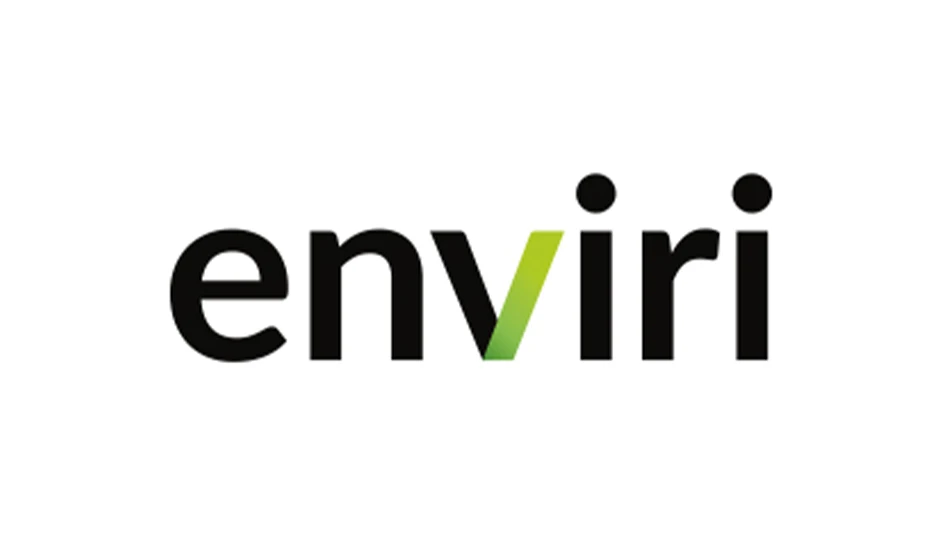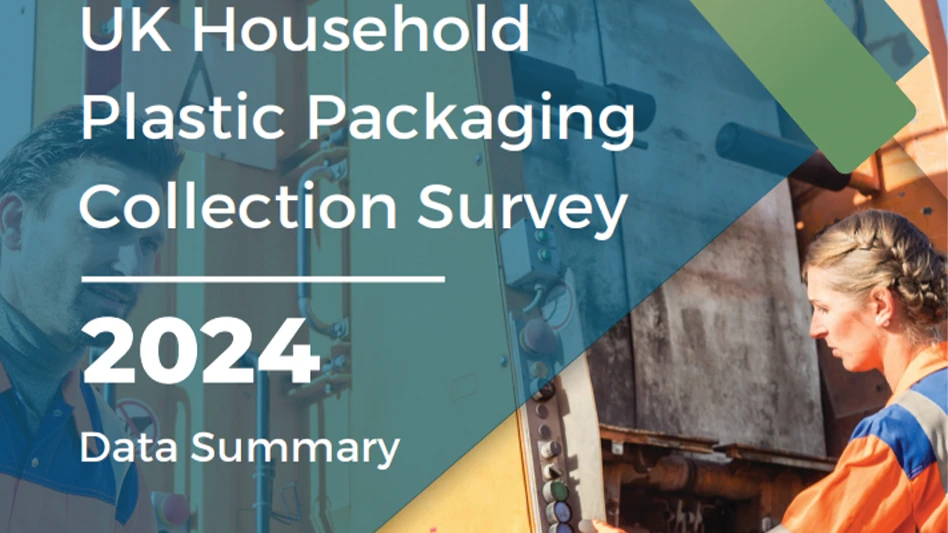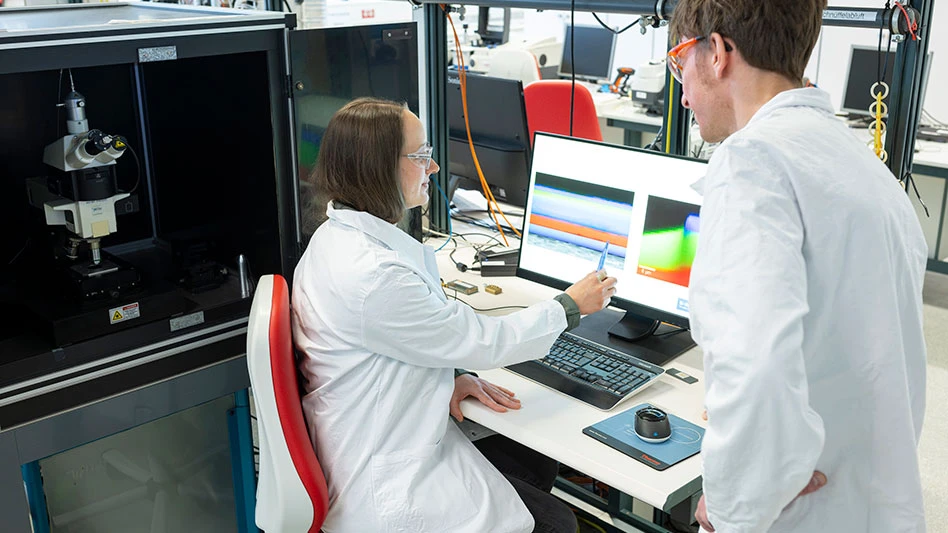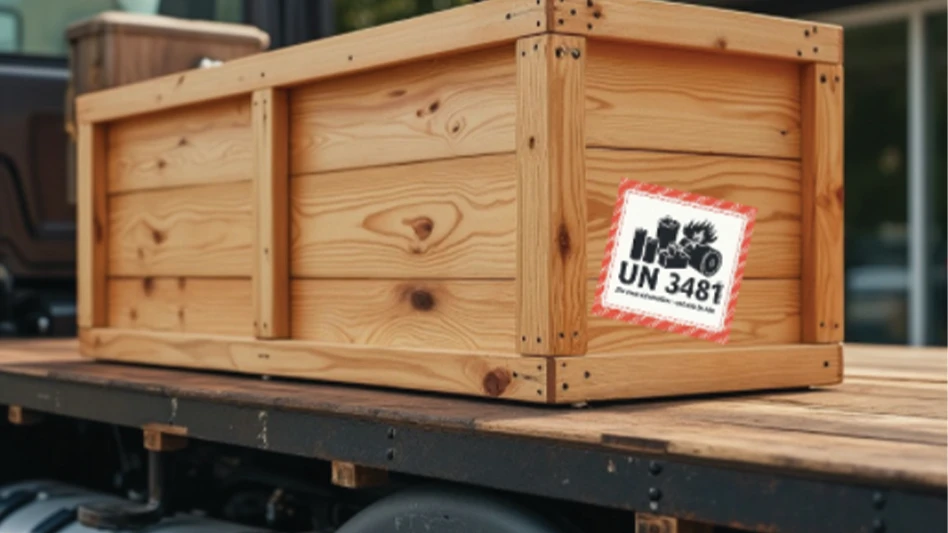Calbag Metals, Portland, Ore., is an exciting place to work these days. Within the past year or so, the nonferrous scrap processing company has acquired two other nonferrous facilities in Portland and become an even stronger player in the region. At the center of the excitement is Warren Rosenfeld, president, a calm and forward-thinking scrap executive who emphasizes the importance of adding value to scrap by providing extensive service to customers and producing a consistent, high-quality product.
The company recently negotiated a contract allowing it to become the exclusive scrap metal supplier to Columbia Aluminum Recycling Corp., a secondary aluminum smelter also located in Portland. Under the terms of the new joint operating agreement, Calbag will become the sole source for all scrap metal except used beverage containers for CARCO’s remelt process.
"It’s a terrific deal, especially since they’re bringing a new furnace online this fall which will change their ingot output from 1 million pounds to 6 million pounds," says Tim Leahy, industrial buyer for Calbag.
The company was already the primary scrap supplier to Kaiser Aluminum, Spokane, Wash. When talking about these arrangements, Rosenfeld emphasizes the importance of going beyond merely selling scrap for the best price.
"How do you define value?" he asks. "It’s a combination of delivering continuity, value of product, pricing flexibility, inventory management – going to a consumer and working with them. It’s not a monologue, it’s a conversation. Together you figure out what the consumer needs and what you as a supplier can provide. You have to be in a problem-solving mode. Scrap is a feedstock, and there are a whole bunch of issues related to using it. It’s a matter of figuring out how to help them best use the product."
This approach has been taken for many years on the ferrous scrap side by companies such as the David J. Joseph Co., Cincinnati, says Rosenfeld, but it is relatively new on the nonferrous side, with occasional exceptions. For instance, IMCO Recycling Inc., Irving, Texas, which processes aluminum used beverage containers for sheet mills, has long maintained a service-oriented approach to nonferrous recycling.
"It may be a little more unusual to be a multi-product scrap supplier for a remelt facility," he says. "But people are trying to limit their suppliers in all industries, and scrap is starting to look more like other industries. In the future, nonferrous processors will get better and better at helping consumers use metal."
CARCO has been very receptive to new ideas about how to use scrap, says Rosenfeld. "We come up with 20 crazy ideas, and they’ll pick two for us to really work through. Our ideas are sometimes right on the mark, and sometimes they are not. Our goal is simple – we’re trying to give them materials that will help them sell their products. It’s collaborative – it’s the fun part of business, like being a pedestrian metallurgist."
Leahy is less modest about why CARCO signed the exclusive supplier deal with Calbag. "It made sense to both of us because we’re the dominant force in the market – we’re the ones who are going to be able to offer them the metal they need," says Leahy.
Scrap consumers are demanding more quality, and designating an exclusive supplier removes a lot of the vagaries mills face, says Rosenfeld. "It’s not just the ISRI spec any more, it’s tailored to the individual furnace’s needs. The ISRI spec is not outdated, but it should be seen as a starting place. People are realizing that the furnace behaves differently depending on what you put in, and the equipment runs best if the feedstock is consistent."
For years, mills wanted prime material because of its consistency, says Rosenfeld.
"The uniform sows and ingots were appealing. Scrap needs to be consistent, as well. We turn our inventory 15 times a year, so basically when we buy material, we’ve got it sold. Our ability to grow and prosper is entirely linked to our ability to add value and make scrap worth more."
Commodity markets are extremely variable. For instance, the recent Sumitomo copper scandal surprised many in the industry, as well as resulting in a precipitous drop in the price of most types of copper.
A scrap processor has to have strategies for reducing the impact of market variability, says Rosenfeld.
"As last month’s copper situation demonstrates, you can’t predict the market," he says. "So we really try to make our product worth more than the price. The model is more like a manufacturer making a product, diminishing the role of pricing. It just reduces that part of the risk. We provide good value so that consumers still demand the product, regardless of the current price."
TRADITIONAL ROOTS
Calbag was started in 1912 by Rosenfeld’s grandfather Abe Rosenfeld, who had come to the U.S. from Russia four years before. "It was a traditional yard, with horse and wagon, that handled everything," explains Rosenfeld. "Then a decision was made in 1963 to just handle nonferrous. Today, we process all kinds of nonferrous materials, including wire chopping. We’re an active merchant trader and do tolling and conversions."
The decision to specialize in nonferrous scrap was made by Rosenfeld’s father, A. Victor Rosenfeld, now chairman of the board, who saw that Calbag was not well situated to supply the three steel mills located in Oregon. Faced with the choice of moving to strengthen the ferrous side or staying put and making nonferrous the facility’s emphasis, he chose to stay put. The existing Portland facility had a lot to recommend it, according to Rosenfeld.
"One unusual thing about Calbag is that it’s all been indoors since day one – there was never any nonferrous processing outside," he says. "This forces some discipline on material handling, and it was unbelievably far-sighted. I have no idea what my grandfather was thinking, but for my father, it was a control issue – avoiding the weather and being able to control materials inside. He has always had more of a view of recycling as manufacturing as opposed to piles of scrap being moved around."
Today, Calbag handles more than 100 different products, including aluminum, brass, copper, lead/tin alloys, scrap lead, magnesium, nickel, catalytic converters, electronic scrap, stainless steel, high temperature alloys and special metals, tin, and zinc. These are processed through a number of different methods, from visual inspections to spectrography to chemical testing or, as Rosenfeld jokes, "see it, zap it, or spit on it." To accomplish all this testing, the company operates three spectrographic units, along with mobile chemistry labs.
As for other types of processing, says Rosenfeld, "We have balers, a large shear, two wire choppers, forklifts, trucks, and – most importantly – a bunch of really good people," says Rosenfeld.
The company president’s pride in his employees is readily evident. "We have very, very low turnover – the average tenure is 15½ years," he says. For the last two years, Calbag has been listed as one of the top 100 companies to work for in Oregon by Oregon Business. That is the "nice bow on the package," says Rosenfeld.
The company has a strong job training program, including skill development and personal finances. They do a lot of employee education, but "not enough," says Rosenfeld. "We are moving towards a model where everyone is in the classroom one week per year. We want people reaching further and further with their minds."
Calbag purchases scrap from the Western U.S. and Canada, and sells materials all over the U.S. and the world. "That’s been a condition of the West Coast for years," says Rosenfeld. "It’s the Gateway to the Far East. Materials didn’t used to go to countries like Malaysia and China, they only went to Japan and Korea. Now they go to all those countries. We also sell some material to India, South America and Europe. The shipping system is getting better and better, and there’s a large domestic market as well."
Calbag has representative offices in Tokyo; Seoul, Korea; Taipei, Taiwan; Hong Kong; Bombay, India; Beijing, Dalian, Guangzhou and Shanghai, People’s Republic of China. "We have strong relationships in a number of countries," says Leahy. "So if the Japanese, for example, decide to get out of the stainless steel market, we’re not at a loss. We can sell it to someone else in that region."
The company only handles a very small quantity of UBCs, as Oregon was the first state in the U.S. to enact container deposit legislation, setting up an infrastructure to collect cans at retail outlets and send them directly back to manufacturers. Any UBCs that come in to Calbag are generally from other, non-deposit states.
"Here in the expansive West, we have to reach far for metals," says Rosenfeld. "So we sometimes get UBCs from dealer networks outside the state. In Oregon, the bottle bill works great. We’re within a whisker of 100 percent redemption. The consumer leaves a nickel at the store when they buy the beverage, and then gets the nickel back when they return the container. It works due to a combination of the financial incentive and the culture of Oregon that caused us to be the first to pass a bottle bill. Oregonians are interested in being proactive."
GROWTH SPURT
The company has realized significant growth in the past year to a year and a half by buying two other Portland companies, ACME Trading and Supply and the nonferrous division of Schnitzer Steel, giving Calbag three yards in Portland. The company also has an affiliate, K and M Metals, Tacoma, Wash. "That makes us a major mover in the Pacific Northwest region as far as nonferrous metals," says Leahy.
"With that significant growth we’ve tried to make sure that the quality and service are still there, and we’re not resting on our laurels," he adds. "We’re updating all our plants and making them more efficient. The more we do that the more we can pass on to our customers."
This recent spate of acquisitions was part of "the natural movement of scrap in Portland," says Rosenfeld, as well as mirroring consolidation in the industry as a whole. Calbag now handles 100 million pounds of scrap annually, and their tonnage is on an "ascending curve."
Although it is a big change to suddenly operate three facilities – and have almost 100 employees – after only having one yard for many years, Rosenfeld is enthusiastic. "It’s fun," he says. "It’s an amazing challenge to maximize what each one does – to take three companies with their own characteristics, consolidates the crossover, and allow each to maximize what makes it unique. So one facility solely does processing, one purchases materials from the public, and one has narrowly scripted processing functions. Of course there are challenges – nothing goes as fast as you want, and there’s a learning curve, but it’s been a really good test of everyone."
One processing ability the company gained through its acquisitions was a wire chopping line in the former ACME yard. "This has helped us tremendously in our ability to market ourselves," says Leahy. "For example, we’re signing a new contract with almost all the local utilities in the area – PGE, Pacific Power – because we’re the only chopping line from Seattle to Oakland. People here either sell their wire to us or they bale it and ship it overseas."
The other acquisition, the nonferrous division of Schnitzer Steel, remains near the Schnitzer facility as an added service to ferrous customers who want to drop off associated nonferrous scrap. The original Calbag yard does a great deal of processing, from copper sorting to baling to loading aluminum shipments headed to CARCO or Kaiser, or packing materials to be shipped overseas, says Leahy. Calbag is one of the largest non-agricultural shippers of containers through the Port of Portland.
"The port is going to be increasingly involved in those new lines of large mega-shippers, which will make us more competitive worldwide because we can ship larger quantities for a lower cost," he says.
"Calbag seems to be on the edge of becoming what scrap yards are going to have to become," Leahy continues. "It seems that scrap yards that are going to be successful have multiple yards, and are able to manage them right. Being big isn’t always the same as being the best, so we have to update all of our yards as needed."
COOPERATION
The best way to learn is to talk to others in the business, according to Rosenfeld. To facilitate such discussion, Calbag has instituted a series of breakfast meetings on various topics that affect both Calbag and its customers. Panelists – often state regulators – are invited to speak on topics such as the applicability of Portland’s commercial recycling law on local businesses.
"These seminars are basically an informational tool for our customers to understand what the regulations are and where they’re headed," says Leahy. "The last one was on Portland’s recycling law. We have another one coming up in which we’re going to discuss transportation issues – what’s happening in Portland with how competitive the port needs to become, and what it means to different manufacturers in the area."
Characteristically, Rosenfeld is fair about giving credit where it is due. "The seminars were Tim’s idea," he explains. "Tim said there have got to be things we need to know about that people we deal with also need to know. It’s a clever idea, and an efficient way for the state regulators and lawmakers to explain a given issue before a large group of constituents. We are going to met twice a year on general issues such as transportation, recycling, changes in the legal codes, and utility rates."
So far, other businesses are very responsive to the idea – 52 people attended the last one, and Rosenfeld is enthusiastic. "It’s amazing – usually when businesses talk to each other, you learn a huge amount. It’s the co-op approach. Information sharing is far and away the best part. We know that on any given day we at Calbag have 2 percent of the answers, but if we get 50 people in the room, we will have close to 100 percent of the answers."
Calbag’s approach to safety and productivity is also cooperative. The company has had a productivity bonus program and a personal and environmental safety bonus program for 15 years. Both of these depend on the company’s performance as a whole, and on the individual’s performance as it contributes to that.
"A lot of companies do this now, but it was innovative when we instituted it in the early 1980s," says Rosenfeld. "These programs can make up as much as 15 percent of peoples’ annual pay. It’s measured every two weeks, and then we have quarterly summaries and awards. The program is company-wide, from truck drivers to office workers to floor workers. It’s all connected, like the hip bone’s connected to the thigh bone. They can measure how they’re doing and figure out pretty quickly how they personally could do better."
This is all done in the context of a team – there are no individual awards. And if there is a single injury, no one gets anything. "We are impressing on our workers the reality that every motion is connected – if you do something that reduces the likelihood of an event, it really does matter," he says. "On the flip side, if you leave the place in a mess, there’s a greater likelihood that someone else will get hurt."
FOCUS ON PRODUCTS
Although there are a number of different issues facing the recycling industry, the bottom line is not that complicated, says Rosenfeld. "It’s not much different if you are IBM, Calbag or International Paper – it’s about the products you’re making," he says. "You have to deal with worker training, facilities and equipment, and start by producing the best product."
Compliance with environmental regulations is just part of producing that product, he says. "There’s no way of getting around it. We have a unique role as metal recyclers – we’re on every regulator’s radar. But good environmental management practices are good overall practices."
Calbag recently hired a full-time environmental specialist in order to assist the company with these practices. "We believe you have to integrate environmental management with general operating management," say Rosenfeld. "It’s part of the whole notion of safety – there is also environmental safety and community safety. It’s a lot for any one person. When our environmental specialist is doing his job best, he’s driving a lot of people crazy."
Having an environmental specialist is a service for Calbag, but it’s also "a service to our customers, who want to know what’s happening environmentally to their scrap," adds Leahy.
Not surprisingly, Calbag also has a cooperative relationship with Portland regulatory agencies. "We have top-notch local regulators," says Rosenfeld. "For example, when we put in our stormwater system, they’ll come in, tell what to do differently, and then we’ll work with them to do the monitoring. It sounds corny, but we’ve got the perfect advisor in the local regulators. They’ve got a tremendous base of knowledge that they are willing to share.
"Cooperation will always get you a whole lot further than being adversarial," he continues. "Portland is a small town, and there are advantages to a small community. People get to know you and you get to know them, so issues of trust don’t seem to be a problem."
Involvement in the local community is important to Rosenfeld, who has been active with a number of organizations, including the Oregon Investment Council, the Legislative Oversight Committee of the Oregon Metals Industry Council, and the Portland Community College Foundation. At various times, he has also served as a commissioner of the Portland Planning Commission, a trade advisor to U.S. Dept. of Commerce Sectorial Advisory Commissions on nonferrous metals and ores, and a member of the Oregon Port Advisory Committee.
"My parents lived here, I’ve lived here my whole life, and probably the next generation will live here as well," he says. "We have a big personal investment here."
LONG-TERM OPTIMISM
Currently, nonferrous scrap prices are lower and there is downward pressure on the market, says Rosenfeld. But at the same time, he is optimistic about the strength of long-term demand. "It is a really thrilling time for our industry because even in an atmosphere of price fluctuation, the use of scrap keeps growing – more people are finding more ways to use it," he says. "I feel good about the future of the industry. Of course, it’s even better when the price is up, but it will go up and it will go down. Regardless of that, there is a use for scrap. We aren’t going the way of the dinosaurs."
Achieving certification under international quality standards such as ISO 9000 could be a next step, says Rosenfeld, although he says the certification process is fairly complicated for nonferrous scrap processors.
"Right now, we’re trying to figure out ISO’s applicability to Calbag," he says. "We’re always moving toward trying to do better, but our next step may or may not be in that context."
EVOLVING INDUSTRY
Rosenfeld says that to be successful in the scrap recycling business, it is key not to make any assumptions and to try and learn new things all the time.
"My father is amazing – he’s soon to be 80 years old, and I don’t know anyone else who’s fully cognizant of the past while not at all interested in it," he says. "He’s always looking towards the future – what’s Boeing doing, how can we learn from them? We can even learn from other manufacturers in terms of how they do something as basic as lighting their plant. We want to learn it all! It may take another 80 years, but we’ll learn it."
Ever aware of the company’s lifeblood, its workers, Calbag recently completed an exhaustive study of its employees’ ages, hours commuted, family health, size of family, and concerns about future needs.
"We’re working on coming up with a whole new way to tailor our compensation – not just salaries and benefits," he says. "Our people spend a lot of time here, and they make a big commitment to work here. So they will determine a large part of what we do next."
The author is editor of
Recycling Today.
Explore the August 1996 Issue
Check out more from this issue and find your next story to read.
Latest from Recycling Today
- SSI equips Japanese company for diverse operations
- Fornnax receives national brand award
- China cuts nonferrous scrap import tariff rate
- Supersede launches marine-grade plywood replacement
- Redivivus, Re-New-Able to build LIB recycling facility in Illinois
- Indiana county awarded $65K recycling grant
- Mixed paper, OCC prices end year on downward trend
- Updated: CAA submits final draft program plan in Oregon





